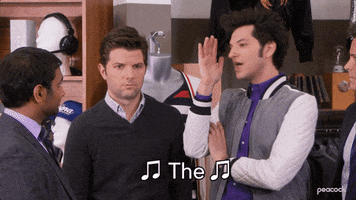There’s a support group for what you’re going through: it’s called “everyone” and we meet at the bar.
Seriously though, you feel incompetent because you are and it’s going to take awhile to get to the other side. You’ll make some massive strides this year, and more strides through intern year and through your residency training. I was probably a PGY4 before I truly began to feel like I had a solid grasp on things and even then I got humbled a few more times. Continues to happen even as an attending.
This job is challenging and you’re never going to be finished learning. Reminds me of a story about a world famous cellist who was practicing at 92 years old when someone asked him why he was doing it, he said “because I think I’m getting better.” Lot of parallels for medicine.
Key tips for doing well on rotations:
1) presentations. These are critical. People know and evaluate you primarily on how you present. Biggest mistake I see students make is doing things out of order. They'll start the HPI, then partway through mention some past medical hx, then maybe a relevant exam finding, then back to the story, then by the way she's allergic to X, so anyhow her pulse was only Y. Get the idea? Make yourself a note card or scribble on a scrap of paper:
HPI
PMH
PSH
FH
SH
ROS
Vitals
Exam
Labs
Imaging
A&P
When you’re presenting, state where you are and don’t put ANYTHING else in that section. Say “the present illness started….” And then when you’re done telling the story, say “past medical history includes….” And so on. No editorializing, just the facts. Know more, say less. Even if you miss key things in your data gathering (you will), a good presentation still makes you look sharp. Don’t say “normal” for anything because nobody believes you know what that is, so give numbers and actual findings - use negative findings if normal and relevant. Believe it or not, this actually makes your presentations shorter, though maybe not short enough for surgery rounds, so take your cues from the residents as to how things are done on a given service.
2) patients want a doctor not a friend. Took me awhile to get this. But don’t be afraid to tell someone you need them to refocus on the line of questions at hand. If they go on a tangent just interrupt and say I’m sorry but can we circle back and focus on XYZ for a moment. There are times where it’s better to listen and let them talk but those times are rare despite what they told you back in M1.
3) don't worry about the different stories - we all know it happens to everyone. They'll tell the students they don't drink, smoke, or do any drugs, and then when the attending goes in they've got a bong in one hand while shooting a line of coke off the exam table. Even as an attending patients will tell me different stories than what they told their PCP. If I had a nickel for every "I see Dr. Jones sent you over here for some sinus trouble..." that gets met with "no doc, my sinuses are fine. I'm really concerned about my hearing." So yeah patients switch stuff up all the time. Just do your best and the law of averages will shake out and you'll be right most of the time.
4) Stay in the circle. Can't stress this enough. Students tend to blend into the paint, so make sure you're part of the group rather than standing outside of it off to the side. Don't shoulder check the intern to do it, but position yourself strategically so you're there. If anyone senior to you is talking, your pencil/pen should be moving. Take notes on the plans just like you see the interns doing. There's a lot to be said for simply looking the part, and the student who is paying attention, making notes, and standing in the circle looks a lot more intelligent and involved than the one standing a few feet away seemingly uninvolved. This also starts getting you accustomed to the work flow of a service and allows you to start being helpful. Rather than "is there anything else I can help you with," you can say "I see that XYZ need to be done, would you mind if I got started on X?"
But overall, you're a brand new third year. This is just the beginning. It's a long process but the process works well. Even the best students know nothing in the beginning; what separates them from the average ones is that the best students keep improving.


